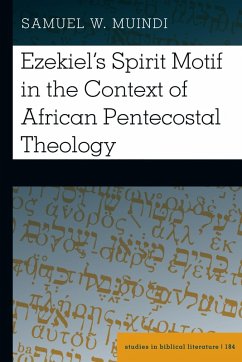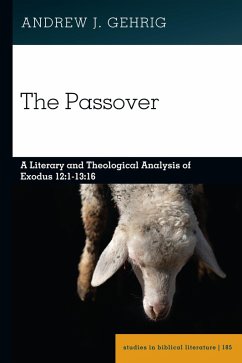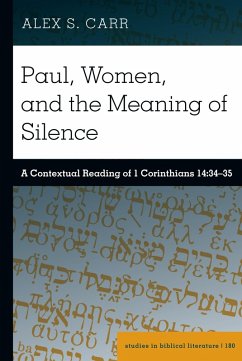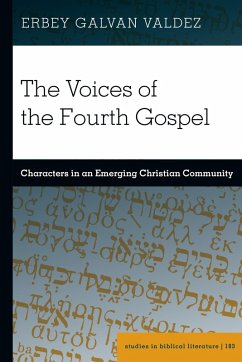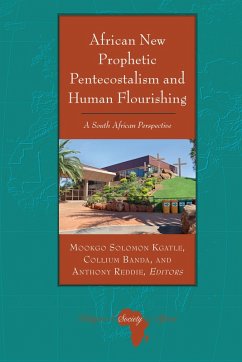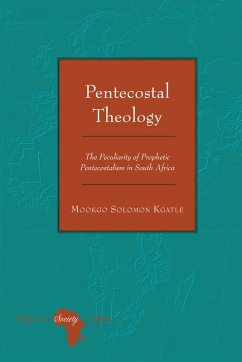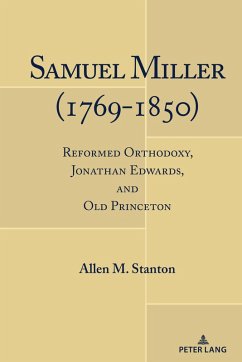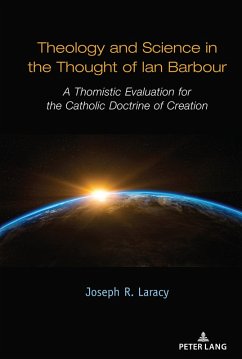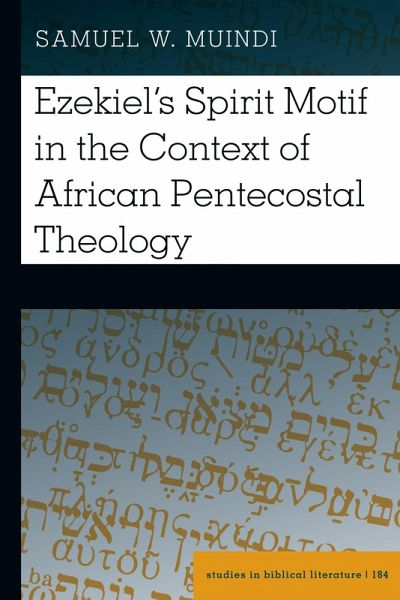
Ezekiel's Spirit Motif in the Context of African Pentecostal Theology (eBook, PDF)
Versandkostenfrei!
Sofort per Download lieferbar
Statt: 84,95 €**
70,95 €
inkl. MwSt.
**Preis der gedruckten Ausgabe (Gebundenes Buch)
Alle Infos zum eBook verschenkenWeitere Ausgaben:

PAYBACK Punkte
35 °P sammeln!
Ezekiel has often been called 'the prophet of the spirit' because of his surpassing use of the word ¿¿¿, 'spirit'. The main argument of this book is that Ezekiel's 'spirit' motif conveys a polysemous symbolism which, nonetheless, accentuates an overarching leitmotiv. Ezekiel's 'spirit' symbolism signifies a paradigm shift in ancient Israelite visualization of divine presence in Israel: from visible phenomena and experiences, mediated through rituals at cultic shrines in Israel, to an omnipresence that is not necessarily mediated through cultus.Moreover, author Samuel W. Muindi posits that t...
Ezekiel has often been called 'the prophet of the spirit' because of his surpassing use of the word ¿¿¿, 'spirit'. The main argument of this book is that Ezekiel's 'spirit' motif conveys a polysemous symbolism which, nonetheless, accentuates an overarching leitmotiv. Ezekiel's 'spirit' symbolism signifies a paradigm shift in ancient Israelite visualization of divine presence in Israel: from visible phenomena and experiences, mediated through rituals at cultic shrines in Israel, to an omnipresence that is not necessarily mediated through cultus.
Moreover, author Samuel W. Muindi posits that the African Pentecostal 'en-spirited' worldview is an apt hermeneutical lens for understanding Ezekielian 'spirit' symbolism. The experiences of the Ezekielian exilic community prefigure dynamic equivalents in African communities. As such, Ezekielian 'spirit' symbolism critically informs the African Pentecostal 'en-spirited' worldview while the latter illumines Ezekielian 'spirit' symbolism.
This book is aimed at students of Biblical theology and others who wish to enrich their understanding of hermeneutics as well as Biblical pneumatology as an 'en-spirited' worldview.
Moreover, author Samuel W. Muindi posits that the African Pentecostal 'en-spirited' worldview is an apt hermeneutical lens for understanding Ezekielian 'spirit' symbolism. The experiences of the Ezekielian exilic community prefigure dynamic equivalents in African communities. As such, Ezekielian 'spirit' symbolism critically informs the African Pentecostal 'en-spirited' worldview while the latter illumines Ezekielian 'spirit' symbolism.
This book is aimed at students of Biblical theology and others who wish to enrich their understanding of hermeneutics as well as Biblical pneumatology as an 'en-spirited' worldview.
Dieser Download kann aus rechtlichen Gründen nur mit Rechnungsadresse in A, D ausgeliefert werden.




